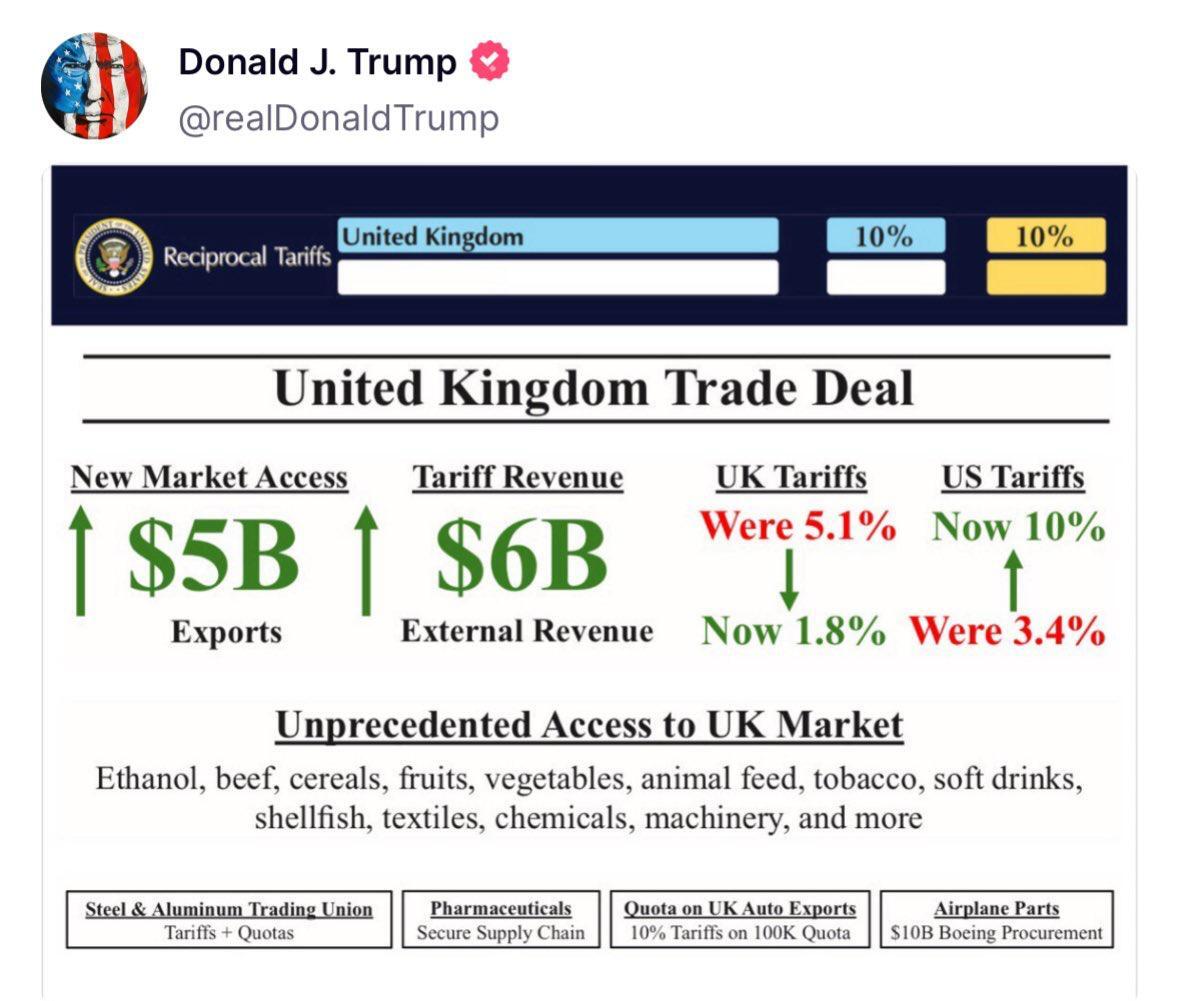Officials from the United Kingdom are all smiles after signing a first-of-a-kind trade agreement with the United States, with tariffs reduced on carmakers, steelmakers and farmers.
For the U.S., tariffs will become 10% across the board, up from 3.4% before the election and other taxes on a wide range of products from the U.K. market will be dropped.
It’s the second landmark trade deal the British have signed in a matter of days, coming on the back of finalising a long-negotiated free trade agreement with India on Wednesday.
Find out more: India, UK seal landmark trade deal, unlocking billions
Deal outcomes
- Car export tariffs - reduced from 27.5% to 10% - applied to a quota of 100,000 U.K. cars (almost the total the U.K. exported last year).
- Steelmaking tariffs - reduced from 25% to zero
- Ethanol tariffs - reduced to zero
- Reciprocal market access - U.K. farmers were given a quota of 13,000 metric tonnes, no weakening of U.K. food standards.
- Other tariffs lowered - Britain agreed to lower tariffs on U.S. imports from 5.1% to 1.8%, while the U.S. will keep an imposed baseline 10% tariff on the U.K.
- Pharmaceuticals - The deal outlines plans for further talks on pharmaceutical products
- Aviation - the U.K. can export plane parts to the U.S. tariff-free and will buy US$10 billion of Boeing aeroplanes.
The U.S. has agreed to drop tariffs on aluminium and steel, a huge boost for Britain’s steelmaking industry which the government says was “on the brink of collapse” just weeks ago.
For carmakers such as Jaguar Land Rover, it will save jobs and hundreds of millions of dollars a year and U.K. farmers will be able to continue making margins on beef exports.
Both sides claim the trade deal as a victory.
“This historic deal delivers for British business and British workers protecting thousands of British jobs in key sectors including car manufacturing and steel,” U.K. Prime Minister Keir Starmer said.
“My government has put Britain at the front of the queue because we want to work constructively with allies for mutual benefit rather than turning our back on the world.”

ING analysts say that for Britain, the U.K.-U.S. deal secures lower tariffs without compromising forthcoming U.K.-E.U. talks and for American interests, it signals to other nations and investors that the Trump administration is prepared to be flexible in tariff negotiations.
“As far as we can see, the concessions offered by the U.K. aren’t considerable,” ING said in a note.
"Britain reportedly won’t make changes to its Digital Services Tax, which applies to the big tech firms (though it is a relatively small revenue-raiser).
“And importantly, the U.K. has said it isn’t changing its food standards. Remember it’s that – not tariffs – which is the more significant barrier to entry for certain U.S. agricultural products, beef and chicken being the most notorious.”
Yet a deal between two close allies poses the question of how that would translate to deals between the U.S. and other, less-bonded trade partners.
“Remember too that even the U.K. hasn’t succeeded in negotiating away the 10% baseline tariff,” ING wrote.
“Our base case is that this remains in place, for all countries, throughout President Trump’s term. His comments in the Oval Office today, where he said 10% was a “low number”, appeared to reinforce that.”



